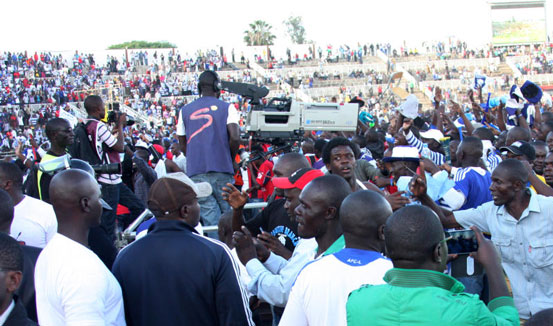×
The Standard e-Paper
Home To Bold Columnists

South Africa-based pay television giant SuperSport’s decision to pull the plug on airing Kenyan and Nigerian premier leagues over ‘breach of contract’ within three weeks of each other this month is the steep price footballing bodies have had to pay for failing to meet their marketing obligations.
The stunning but not entirely unexpected decision to wind down operations in Kenyan and Nigeria has thrown a cat among the pigeons as far as the future of domestic club football is concerned.